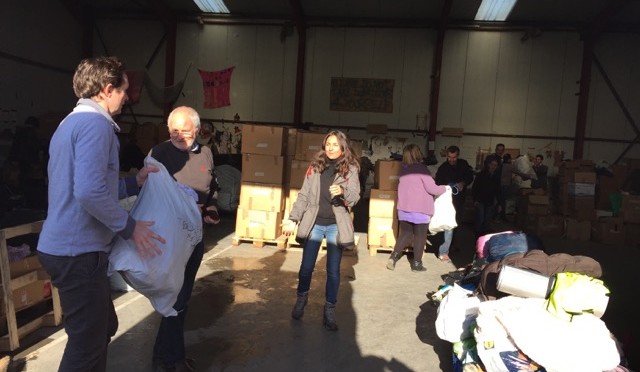
‘A desperate reality for those in Calais.’
Fr Dominic Howarth reflects on his July visit to Calais:
The warehouses are perilously empty. I had a chance for longer and deeper conversations with the refugees than on any previous visit, and I have tried to share something of their stories within the reflection – including the conversation with the man who was head of aviation security at Kabul airport until the Taliban arrived.
As ever, thank you for the help and support that you have given and are giving.
Whatever publicity you can provide will be important – this is now a forgotten story for many in the UK and in Europe. It is a desperate reality for those in Calais.
With every blessing
Fr Dominic
Calais July 2016 reflection
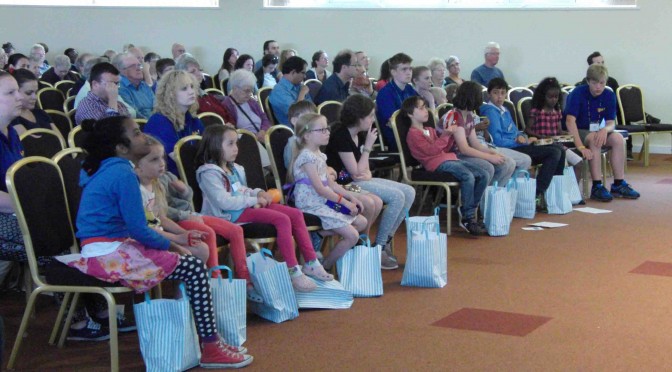
Increasing inequality: a fresh approach needed.
Writing in the Catholic Universe this weekend John Battle states that ‘increasing inequality is not only economic; it is political and social’ and he believes that this is why a ‘fresh approach’ is needed.
He goes on to say that ‘because of this the coming annual weekend conference of the National Justice and Peace Network to be held at Swanwick could not be more prescient’
He speaks of political short termism and political processes that ‘cannot generate deep hope among people’
John believes that referenda are ‘polarising instruments, inevitably reducing the complex question to the dangerously simplistic’.
Over the course of the weekend speakers will consider ways we can meet the challenges facing each of us as baptised Christians seeking ways to work for the ‘common good’
During the conference there will be an opportunity to take part in a panel debate where participants are encouraged to raise questions of global as well as more domestic issues.
A wide range of workshops will offer possibilities for action, to enthuse activists in our own settings.
Conference details
The Catholic Universe
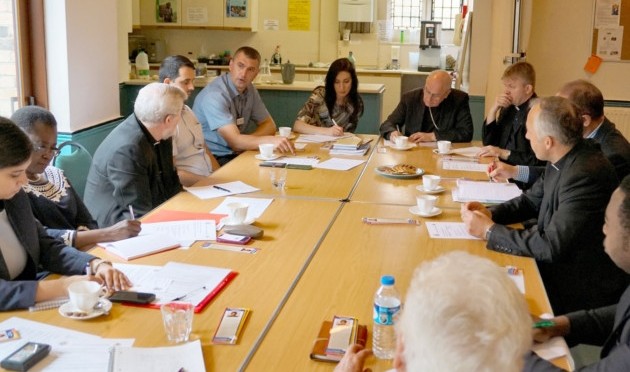
Bishops’ meeting reveals shocking extent of human slavery in East Anglia
The wide extent of human slavery in parts of East Anglia was revealed at a meeting between representatives of the Catholic Church, local police forces and the office of the Independent Anti-Slavery Commissioner last week.
The meeting was initiated by the Bishop of East Anglia, Rt Rev Alan Hopes and was led by Bishop Patrick Lynch, chairman of the office of migration policy for the Catholic Bishops’ Conference of England and Wales (CBCEW).
The round-table discussion heard from Catholic priests and specialist police officers with detailed knowledge of vulnerable communities in the region from Eastern Europe, Africa and the Far East.
Read more here
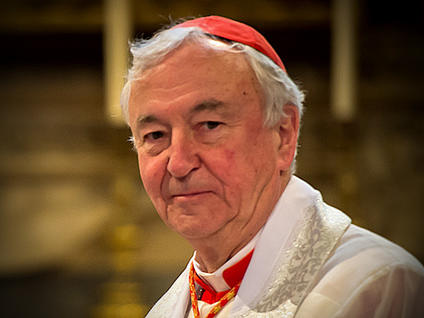
Post-EU Referendum statement from the Cardinal
“We need to grasp again our basic sense of purpose”
Cardinal Nichols, Archbishop of Westminster and President of the Catholic Bishops’ Conference of England and Wales has released a statement after the EU Referendum saying that racism and hatred of others is “something we must not tolerate”
28/06/2016 1:05 pm
Statement reads:
“We all need to reflect on what has been a tumultuous few days and ponder what is needed now.
“Firstly, I am very conscious of the Polish community in Hammersmith or of people confronted by banners in Newcastle. This upsurge of racism, of hatred towards others is something we must not tolerate. We have to say this is simply not acceptable in a humane society and it should never be provoked or promoted.
“Racism and hatred must never be tolerated, but there is no need for fear. We always place our lives at the foot of the cross; in the hands of Jesus. We have an important job in defining the horizon against which we live and that is where the profound values we seek to embody really come to life: when we see ourselves living in the presence of God, living with that transcendent horizon. If that transcendent dimension is simply put to one side, if there is no space to see ourselves under the providence of God and living consciously in the presence of God, then society closes in on itself and becomes much more self-centred and much more divided.
“I am sure that every leader needs to reflect on our failure to listen and to give voice to those who feel voiceless.
“We need to grasp again our basic sense of purpose; in living together, creating together and fashioning a society. It is that sense of purpose that we may have lost focus of; believing that the purpose of politics is to manipulate power; the purpose of business is simply to make profit for a few. This challenge has been with us for a while now.
“Our purpose must be our common good, the good of all with no one excluded. Our politicians have to deal with their issues, businessmen and banks with their issues, but the fundamental purpose is to build a world in which strength is used for service and no one is excluded.
“The great challenge for those leading the nation now is to speak for everyone. If a victory in a referendum remains a point of division, then we become weaker and weaker as a nation and not play a part in the international scene tackling the world’s problems, which are great and challenging.”
Bishop Declan Lang, Bishop of Clifton and Chairman of the International Affairs Dept of the Catholic Bishops’ Conference of England and Wales added:
“Every one of us has a responsibility to tackle hate crime and reassure minority communities that they are welcome here.
Regardless of the UK’s political future we must never let hatred or bigotry poison our society. Migrants from Europe and further afield have consistently made an overwhelming contribution to the good of our country. They quite rightly call this country their home and have a right to live free from intimidation.
I urge the Catholic community actively to oppose the appalling prejudice we have seen in recent days.”
+Declan Lang
for more information click here
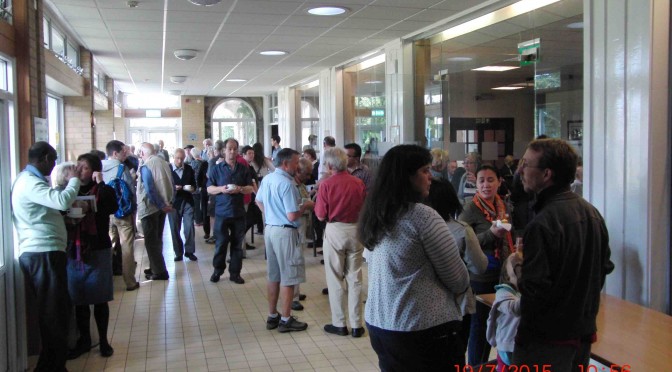
The people have spoken, so as Church – how might we respond?
Sunday’s Gospel reading offers ‘peace to this house’ whose house? How about peace to ‘ALL’ our houses?
In our midst are many disaffected and disenfranchised fellow citizens, who feel and are excluded through poverty and limited opportunity. The lack of certainty and resulting feelings of insecurity can and have led to scapegoating and targeting of the ‘other’.
Is this a moment to despair at what appears to be a real fragmentation in society as we have known it for around 40 years – A generational shift?
This is certainly not ‘a sticking plaster’ moment, we must take a deep breathe, begin a period of reflection and discernment and more especially of listening – a period of ‘walking in another person’s shoes with openness and respect.
Remembering that the ground on which we stand is ‘Holy Ground’ as is the ground on which all God’s people stand. (Exodus: Ch.3)
Whatever our political persuasion we have arrived at a moment of challenge and opportunity, we must be part of a movement for reconciliation and to accept the responsibilities of our Christian baptism.
The National Justice and Peace Network invites all who wish to be part of this process to join us at our annual conference in Swanwick, Derbyshire from 15-17 July to consider a way of ‘doing politics’ which can work for all people.
There will be opportunities to listen, reflect, to consider possibilities and to celebrate meaningful liturgy.
PLEASE JOIN US, YOU WILL BE MOST WELCOME.
Click here for more information
Or email: admin@justice-and-peace.org.uk

The NJPN conference offers opportunity to take part in a number of workshops, each providing information and ideas for action on a range of issues.
Included are the following:
1. Sharing grassroots visions of the Good Society
Hear stories from Church Action on Poverty’s work alongside the UK’s poorest people- and explore how the approaches could make a difference in your own communities. You’ll be making your own contribution to an ongoing national conversation about how we can build a Good Society, starting at the grassroots.
2. What happens to democracy when women don’t have a seat at the table?
By focusing on the role of civil society in state-building, Progressio aims to put people and communities at the centre of social transformation in fragile states. In this workshop we’ll discuss the impact of what happens to democracy when women don’t have a seat at the table from and we’ll explore tools to create a more equal political space encouraging workshop participants to reflect on their own power and agency.
3. Monetary Reform, Social Justice and Faith
Positive Money is a movement to democratize money and banking so that it works for society and not against it. The workshop will give an introduction to Positive Money, look at how social justice principles apply to monetary reform, how faith connects to social justice, and what you can do.
4. Tax-dodging – an assault on democracy
The workshop will look at what we already know and think about tax-dodging, will give an overview of some of the ways it can take place and the effect it has both in this country and beyond. Building on the revelations of the Luxembourg Leaks and the Panama Papers we also look at the corrosive effects on our democratic structures.
5. Money makes the wars go around…and on and on!
Whether it is through taxation, investments, pensions etc. money keeps the war machine running. The workshop facilitated by Pax Christi will look at local and global initiatives that challenge this.
To book for conference Click here
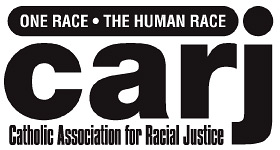
We must devote ourselves to the long term aim of restoring community
After the Referendum – Supporting One Another
It is only days since most of us were shocked by the results of a referendum which put the UK on track to leave the European Union. The months leading up to the referendum saw an increasingly polarised debate in which ‘immigration’ became a focus of disagreement and discord. Many migrants and refugees, even those long settled here, became nervous. Some with anti-migrant sentiments may have felt that the result of the referendum gave them permission to speak and act against their neighbours. Police have acknowledged a 57% rise in reported hate crime since the referendum.
These developments are especially disconcerting, as the UK had long been seen as a very diverse society at ease with itself. In 2009 CARJ acknowledged this:
CARJ wishes to acknowledge and to celebrate all that has changed for the better over the past 25 years and the progress that we have all made toward becoming a truly inclusive Church in a truly inclusive society. Overt discrimination has been made illegal and largely banned from mainstream society. People of diverse backgrounds now live and work in all sectors of society. Educational disadvantage is being steadily overcome. Our churches and schools are now communities of every language, nation, colour and culture. (The Changing Face of Britain, 2009)
This positive achievement was especially evident in London – which may be the most cosmopolitan city in the world. London’s rich diversity, at ease with itself, was evident to the world during the 2012 Olympics
Recent events have seriously disturbed any complacency on our part, and they may have begun to undermine our positive achievements. We come out of the recent referendum more conscious of our divisions and more uncertain about our ‘common values’.
Now, we must devote ourselves to the long term aim of restoring community, taking seriously the concerns of all those who feel they have been left out of the country’s economic progress. We must also address the immediate challenge of an increase in ‘hate crime’.
We welcome the recent statement on ‘hate crime’ by Home Office Minister Karen Bradley, and her announcement that the government will shortly be publishing a Hate Crime Action Plan. We also welcome the unanimously positive response to her statement by Parliamentarians from across the political spectrum
Hate crime has long been recognised as an important challenge. The UK has strong legislation to deal with it, dating back to the Crime and Disorder Act 1998. The Coalition Government 2010–15, developed an action plan to oppose hate crime which was spelled out in Challenge It, Report It, Stop It (March 2012). The plan included a strategy to address three key issues – prevention, reporting and response to hate crime. In May 2014, the Government reported on progress. We await the new Hate Crime Action Plan, hoping that it will build on the past and help us to face our new challenges together.
Undoubtedly, the new Action Plan will acknowledge the importance of local communities, voluntary associations and faith communities in addressing the challenges we face today. This is important. There are churches across the country who can influence their local communities.
We have other assets at hand in this effort. True Vision is a police funded website designed to provide information about hate crime (see more here) and organisations like Hope Not Hate have taken a lead in this area.
Finally, although CARJ is a relatively small organisation, we have extensive networks of people in local areas, working with others to build a more just, more equal, more cooperative society. We concern ourselves with a variety of issues facing marginalised communities – housing, education, poverty, criminal justice, etc. We are also available to support anyone who is trying to prevent hate crime or to re-build an atmosphere of mutual respect in our society. Please don’t hesitate to be in touch.
Mrs Yogi Sutton
Chair of CARJ Trustees
30 June 2016
Catholic Association for Racial Justice (CARJ)
9 Henry Road
London N4 2LH
020 8802 8080
info@carj.org.uk

NJPN North West Justice & Peace E-Bulletin July 2016
‘What about welcoming the stranger? We would do well to heed Sunday’s second reading (26 June):
“You must love your neighbour as yourself. If you go snapping at one another and tearing one another to pieces, take care: you will be eaten up by one another”. – Galatians 5: 14-15’
To download the E-Bulletin:
Click here: NJPN NW Justice and Peace E Bulletin July 2016

Fostering a culture of encounter
Responding to the concern expressed by many following the decision to leave the EU, one of the keynote speakers at the forthcoming NJPN conference, Jenny Sinclair of ‘Together for the Common Good’ suggests that:
“Our response can be around the potential of what churches and individual Christians can do (and are doing) on the ground to foster a culture of encounter at local and neighbourhood level. We are well-placed to engage in the tough, patient work of reconciliation between different interest groups, and as honest brokers to build a common good across differences where there are estrangements. All of this can be promoted more broadly but it must be demonstrated by being lived out personally by people at parish level. We are custodians of a tradition that can help to heal divisions: love, mercy, honesty, relationships, and forgiveness. It won’t be easy to rebuild trust and there is a need for encouragement and formation in these things and we need a refreshed narrative as well as capacity building. Some communities have been ignored for a long time. It is important to acknowledge and respect that people have very different life experiences and views: we do not all have to be the same. We can enable different groups to speak honestly while also challenging demonisation wherever it occurs, no matter from what side.”
Together for the Common Good.See more here
Places still available at NJPN conference 15-17 July.
See here for booking form
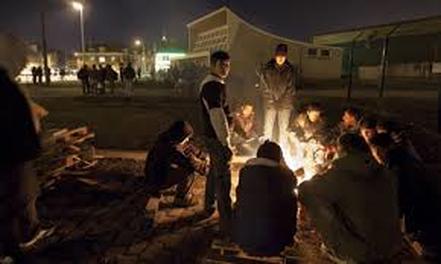
‘A National discussion on immigration that is humane and honest’
Representatives of organisations working with refugees and asylum seekers have written an open letter calling for the Prime Minister to ‘restore trust in the asylum system so all get a fair hearing and access to the protection they need’
The letter reads:
Sir,
Now the UK has voted for Brexit we need a national discussion on immigration that is humane and honest, not based on fear or misinformation. The government has said it will publish a new UK asylum strategy. We believe it should stand for three key principles.
First, let more refugees find safety in the UK without having to risk their lives in the hands of people smugglers.
Second, restore trust in the asylum system so all get a fair hearing and access the protection they need.
Third, support refugees to rebuild their lives, without fear of return to a place where their lives are at risk.
Previous British leaders helped to establish the international laws protecting people fleeing from violence or persecution. Unravelling those protections for the world’s most vulnerable would be a travesty.
Maurice Wren, CEO, British refugee Council;
Laurie Lee, CEO, CARE International UK;
Tess Berry-Hart, director, Calais Action;
Kate Allen, director, Amnesty International UK;
Loretta Minghella, chief Executive, Christian Aid;
John Wilkes, chief executive, Scottish Refugee Council;
Girish Menon, chief executive, Action Aid, UK;
Chris Bain, director, CAFOD;
Jane Waterman, executive director, International Rescue Committee UK;
Leigh Daynes, executive director, Doctors of the World UK;
Stephen Hale, chief executive, Refugee Action;
Susan Munroe, CEO, freedom from Torture,
Sarah Teather, director, Jesuit Refugee Service UK.













